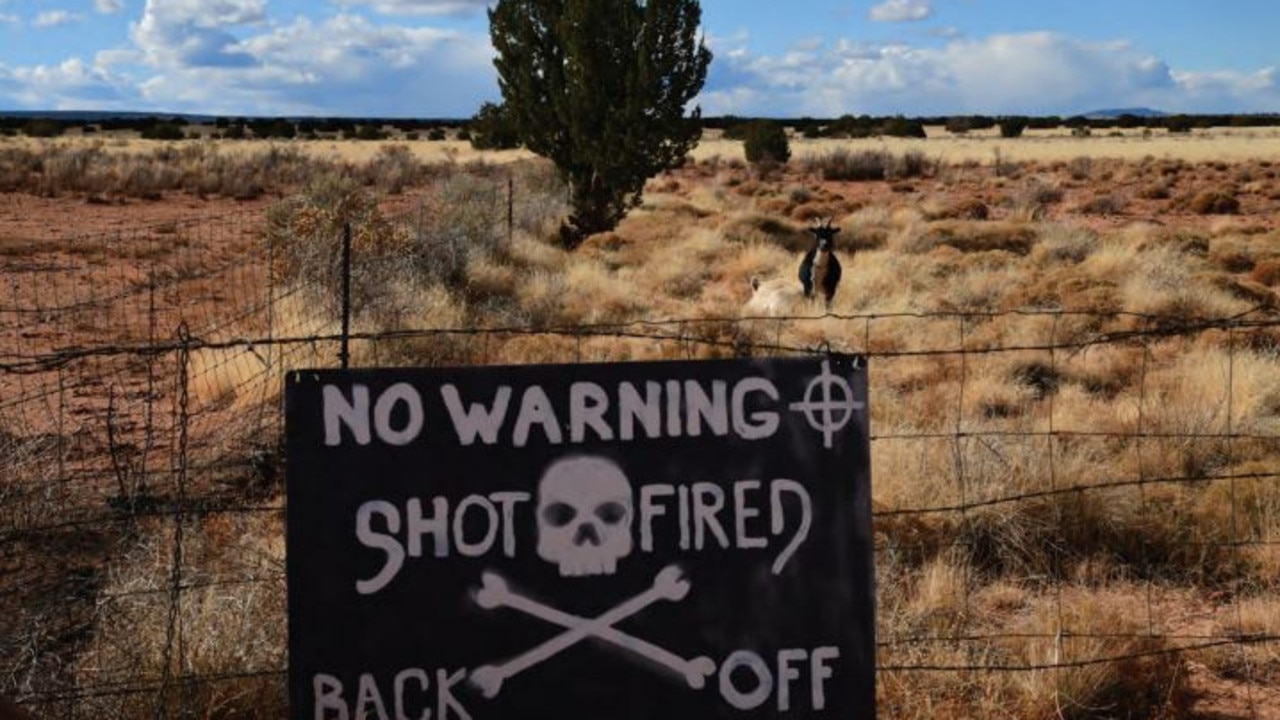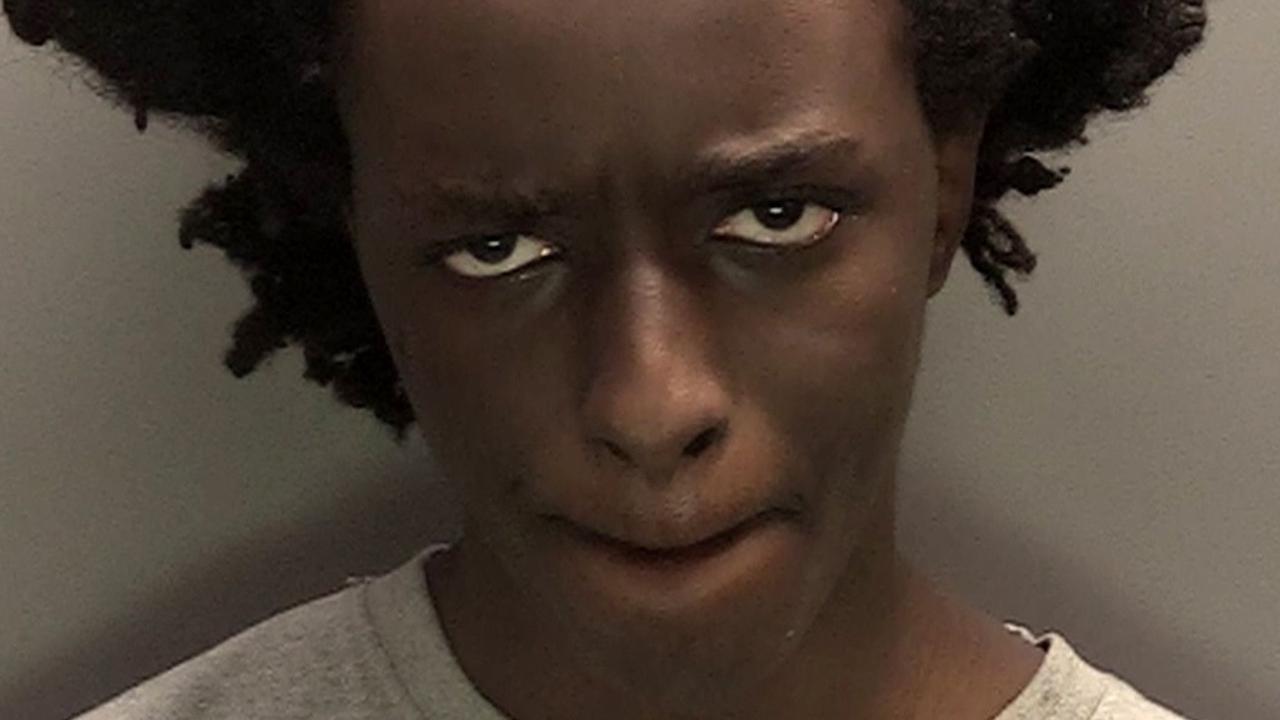The frightening new face of Australian bikies
Forget tattoos and motorbikes. Call them ‘Nike Bikies’. These bikies have upped their game, taking on new tech and a new type of recruit to run drugs across Australia and overseas.
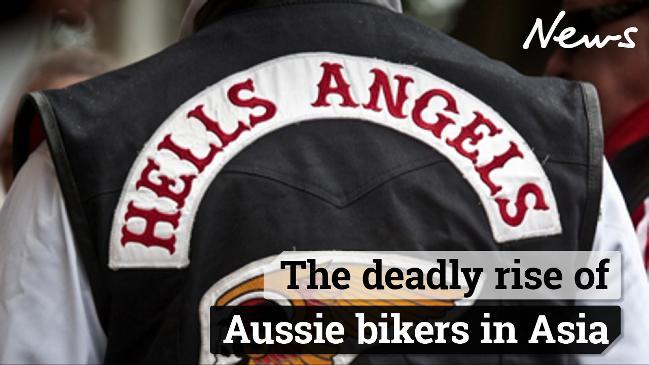
Crime in Focus
Don't miss out on the headlines from Crime in Focus. Followed categories will be added to My News.
Under the flapping, white linen canopy, on a day-bed poolside at an exclusive resort in Jumeriah Beach, the well-known Australian Outlaw Motorcycle Gang leader can be seen with his collection of mobile phones.
The shirtless figure is surrounded by a posse of glamorous women and other heavily tattooed men at the resort on the coast of United Arab Emirates’ capital Dubai.
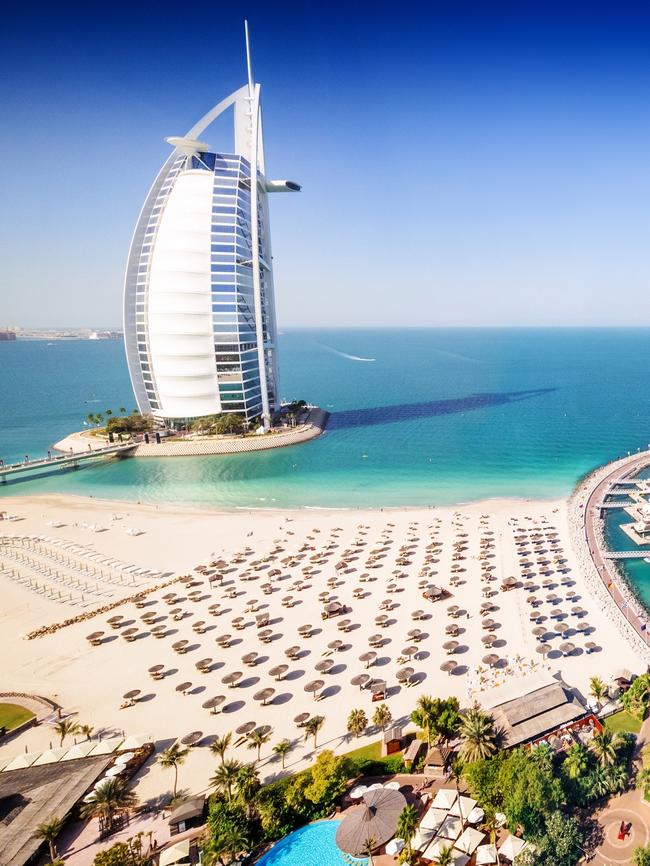
His status as a wanted man in Australia is clearly a distant thought as law enforcement intelligence suggests he continues to make deals to traffic multiple shipments of drugs to Australia.
From his overseas base, he is already suspected of having set up a money-laundering operation and now conducts meetings with cohorts from Mexico and Eastern Europe for more MDMA and cocaine.
Hospital horror: Ice addicts turn emergency rooms ‘into war zones’
Drugs push: Bikies target regional towns in new ice age
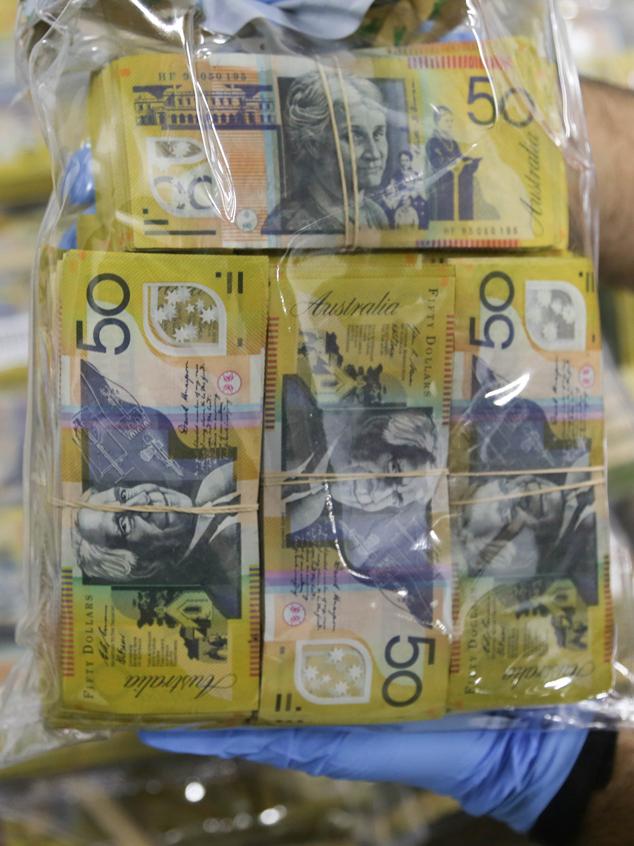
He can be seen, by News Corp Australia, but his calls cannot be heard even by police tracking his moves as he uses the latest in encryption technology and he knows the laws well enough to know he is untouchable as long as he remains there or another country like Turkey, whose priorities are geared more to counter terrorism and mass humanitarian needs than organised crime.
This is the modern face of Australia’s Outlaw Motorcycle Gang criminal.
They won’t necessarily ride bikes, wear patches on their leather jackets or even have tattoos but at the groups’ top end, they are using the latest in top-line encryption, are networked with cartels overseas and study market trends in Australia to establish the best regions to “franchise” for the lower-level cohorts to run their meth distribution.
In certain Australian states, legislation makes them less obvious, with anti-consorting laws and a ban on wearing their ‘colours’, but they have also become more sophisticated in how they now do business which is partly based overseas.
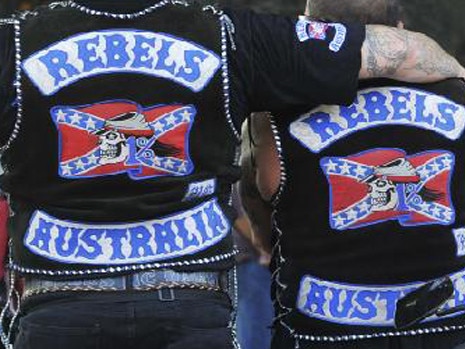
According to the Australian Criminal Intelligence Commission (ACIC), there are 39 OMCGs considered as hard core ‘One Percenters’ in Australia, including 4760 patched members, 957 prospects and 4585 associates. The Rebels account for about half the national total, followed by the Commancheros. The Bandidos have 45 chapters across Australia.
NSW has the largest membership base, with 18 clubs, including the usual big four, and two others (Highway 61 and Rock Machibe) sighted but not considered big enough to be recognised as having a presence.
Australian Federal Police agent Brendan O’Hearn who works with the National-Anti Gangs Squad (NAGS) said the so-called “Nike Bikie”, the modern-day bikie at national street level, wouldn’t necessarily own or be able to even ride a motorbike but were wannabes in expensive sports clothes.
They have also become more strategic in their positioning, looking for the markets to base operations and even contacting colleagues via encrypted messaging apps, such as the terrorist-preferred Threema — with servers based in Switzerland and through which one can send secure messages, multimedia, locations and texts — or the simpler Telegram and Whatsapp apps.
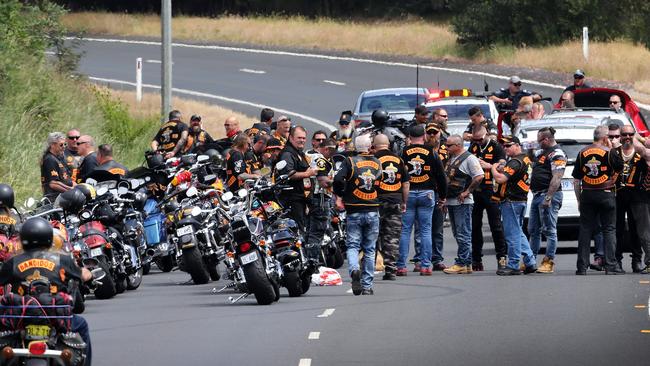
“There’s a lot of things that have changed since bikie groups started out,” O’Hearn told True Crime Australia.
“Certainly a lot of the rules have changed, recruitment has changed, the calibre of people they are recruiting has changed, and methodology has changed in the sense they don’t all have to ride motorbikes any more. A lot of them can’t ride bikes or don’t ride bikes, whereas before that was one of the rules of joining the club, you had to ride or you had to be able to ride a Harley Davidson, specially Harley Davidsons, for some clubs. But they have become gangster wannabes now more than traditional bikers, which has caused a bit of division within the clubs and that’s maybe what has led to some of the division within the clubs that has led to some of the conflict within the clubs.”
Australian Border Force with Immigration Department records have tracked some of the biggest biker figures overseas, namely Istanbul in Turkey, Dubai in United Arab Emirates, Eastern Europe including Albania and the Netherlands.
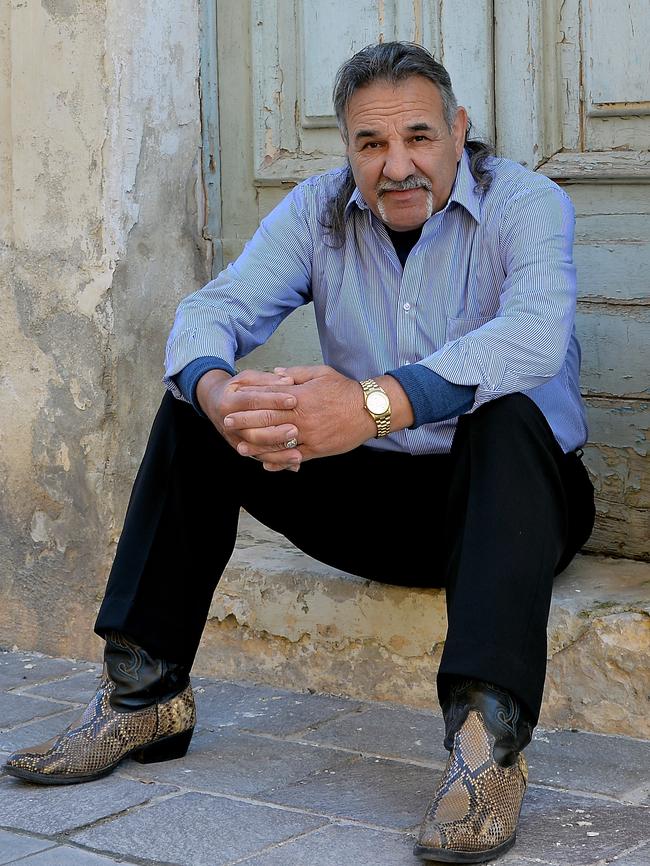
O’Hearn wouldn’t comment for operational reasons but agreed some figures were still being looked at.
“The Rebels for example have international chapters offshore so their influence is still quite strong (in Australia), even though Alex Vella (Rebels founding figure) has been in exile in Malta for many years he still appears to have a certain level of influence in the club despite his not being in Australia for a number of years so that hasn’t waned in that regard.”
Domestically, OMCGs will target regional Australia to expand their city markets for MDMA (ice).
Australian Federal Police Deputy Commissioner Operations Neil Gaughan said there was no doubt the AFP had seen “a large number” of OMCG senior members either basing themselves offshore or travelling offshore for periods of time to be involved in meetings with criminal groups, including from Mexico and Eastern Europe.
“We know from work we are doing with our international partners they are involved in meetings offshore with these other criminals groups,” he said.
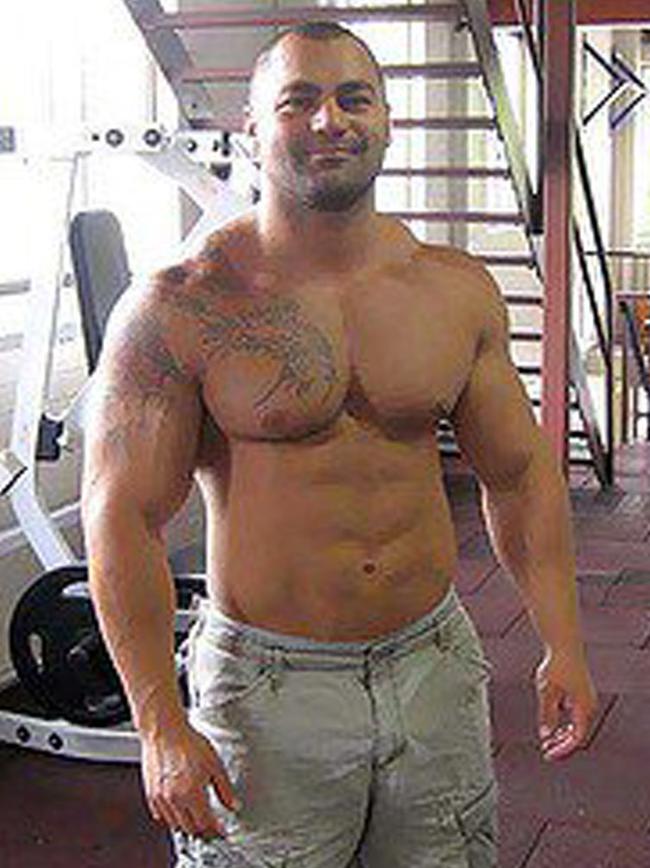
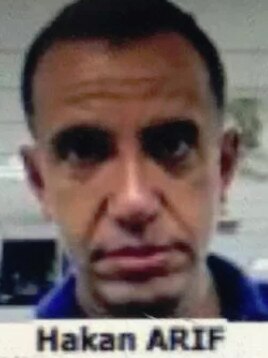
Some of those fugitives basing themselves offshore include Commanchero Australian-Turkish dual national Hakan Ayik who pioneered the use of encrypted mobile apps in Australia for large scale drugs runs. He has been joined in Istanbul by former fellow bikie Hakan Arif, the pair travelling extensively on fake passports between UAE, Turkey and Asia.
“The top end of OMCG groups are quite intelligent; they are operating in jurisdictions that can be difficult for us to work in,” Gaughan said.
“They are all using encrypted communications, they are also establishing businesses that appear to be legitimate fronts. But there is no doubt those lower down the tree are seen as expendable. This is where you see more nominees arrested compared to fully patched members. Those nominees have to prove themselves by conducting illegal activity.”
That illegal activity includes franchising drug distribution in regional Australia.
“What OMCGs are doing is pushing drugs into rural communities — particularly ice — knowing the real impact it is having on communities. If you look at where drugs are being distributed across the country, there is no doubt rural communities suffer more from ice than city communities.”
Test case: Cops’ last shot at ‘make or break’ bikie gun ban
Bikie news: ‘Lone actor’ terrorists join outlaw bikies and gangs
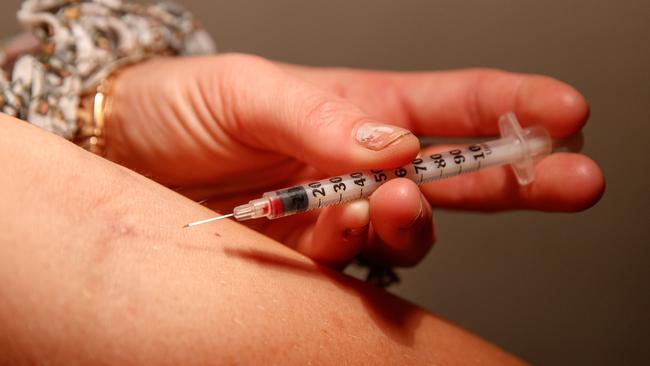
Gaughan said ice was an insidious drug with one hit enough to get someone addicted whereas cocaine use — which was also rising — didn’t have the same impact on the community.
One community impacted more noticeably by drugs is the nation’s capital.
The Labor ACT Government, backed by the union movement which is reportedly using bikies as hired muscle, has flatly refused to follow other states with OMCG prohibition laws thereby turning the capital into a honey pot for bikies who can roam and gather freely. They have been involved in numerous violent incidents, with the ACT Opposition Attorney-General spokesman Jeremy Hanson warning it was only a matter of time before a member of the public was caught in the crossfire.
ACT Police agree that already there has been at least one close call, when the wrong home was inadvertently shot up by bikies, a bullet missing a man in his bed by one metre.
“At the end of the day this is a lot different to the problems we had in the ‘60s, ‘70s or ‘80s,” ACT AFP Detective Superintendent Scott Moller said, adding they were highly organised and well networked.
“These clubs are significant players in terms of organised crime, they really command their little areas but have got links across the states nationally and internationally into other illicit markets, and these are very substantial organised crime members living and operating in our community … We will continue the pressure to disrupt and dismantle their activity in Canberra and we won’t stop until we achieve that.”
Originally published as The frightening new face of Australian bikies

